Propolis
How to submit an article:
- Registered users can submit any published journal article that has a unique DOI (Digital Object Identifier) name or link to Research Hub.
- For example, you can paste the full DOI link:
https://doi.org/10.1109/5.771073or just the DOI name:10.1109/5.771073into the field above and click submit. - The person who is first to submit a valid article to Research Hub will forever be credited for it, and every article submission earns you +6 Research Points.
Published research studies are articles that present the findings of original research that has undergone a peer-review process and has been made publicly available in scholarly journals, books or other media.

The effects of propolis supplementation on high‐sensitivity C‐reactive protein, testosterone hormone, and metabolic profile in women with polycystic ovary syndrome: A randomized, triple‐blinded, placebo‐controlled clinical trial
2023 Sep 02 Phytotherapy Research Abbasi E, Bagherniya M, Soleimani D, Ghasemi‐Tehrani H, Abbaspour M, Clark CCT, et al.
Randomised Controlled TrialPropolis supplementation positively influences metabolic factors, testosterone levels, lipid profile, and body measurements in women suffering from polycystic ovarian syndrome.

Bee Products and Colorectal Cancer—Active Components and Mechanism of Action
2023 Mar 27 Nutrients Moskwa J, Naliwajko SK, Dobiecka D, Socha K
Bee products, such as honey and propolis, contain bioactive components with potential anti-colon cancer properties, and there is some evidence suggesting their role in the prevention of colon cancer.
Review Article Bowel Cancer
Propolis protects ovarian follicular reserve and maintains the ovary against polycystic ovary syndrome (PCOS) by attenuating degeneration of zona pellucida and fibrous tissue
2022 Dec Biochemical and Biophysical Research Communications Sapmaz T, Sevgin K, Topkaraoglu S, Tekayev M, Gumuskaya F, Efendic F, et al.
In conclusion, a lower dose of propolis (50 mg/kg) exerts more therapeutic effects than a higher dose (150 mg/kg) in rats with PCOS, while the excessive consumption of propolis has no further therapeutic effect.
Network Pharmacology Animal Study Ovarian Insufficiency Propolis PCOS
Dietary supplements for treatment of endometriosis: A review
2022 Mar 14 Acta Biomedica Yalçın Bahat P, Ayhan I, Üreyen Özdemir E, İnceboz Ümit, Oral E
Review ArticleDietary supplements are found to be a promising complementary treatment for endometriosis, thanks to their anti-inflammatory, anti-oxidant, and immune modulatory characteristics.

Honey Bee Products: Preclinical and Clinical Studies of Their Anti-inflammatory and Immunomodulatory Properties
2022 Jan 03 Frontiers in Nutrition El-Seedi HR, Eid N, Abd El-Wahed AA, Rateb ME, Afifi HS, Algethami AF, et al.
Bee products, including propolis, royal jelly, honey, bee venom, and bee pollen, show potential therapeutic effects in regulating inflammatory mediator production, improving immune response, and acting as anti-inflammatory, immune protective, antioxidant, anti-apoptotic, and antimicrobial agents.
Review ArticleResearch insights are moderated by the Research Hub team and offer an at-a-glance overview of interesting research findings.

2023 Phytotherapy Research
Propolis supplementation positively influences metabolic factors, testosterone levels, lipid profile, and body measurements in women suffering from polycystic ovarian syndrome.
Randomised Controlled Trial
The effects of propolis supplementation on high‐sensitivity C‐reactive protein, testosterone hormone, and metabolic profile in women with polycystic ovary syndrome: A randomized, triple‐blinded, placebo‐controlled clinical trial
Abbasi E, Bagherniya M, Soleimani D, Ghasemi‐Tehrani H, Abbaspour M, Clark CCT, et al.

2022 Acta Biomedica
Dietary supplements are found to be a promising complementary treatment for endometriosis, thanks to their anti-inflammatory, anti-oxidant, and immune modulatory characteristics.
Review Article
Dietary supplements for treatment of endometriosis: A review
Yalçın Bahat P, Ayhan I, Üreyen Özdemir E, İnceboz Ümit, Oral E

2021 Molecules
Bee honey and propolis could have potential beneficial effects as supporting treatments for COVID-19, enhancing immunity and inhibiting viral activity.
Review Article Anti-Inflammatory Antiviral COVID-19 Honey Immunomodulation
Propolis, Bee Honey, and Their Components Protect against Coronavirus Disease 2019 (COVID-19): A Review of In Silico, In Vitro, and Clinical Studies
Ali AM, Kunugi H
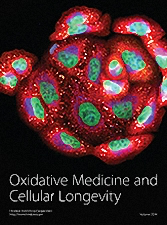
2017 Oxidative Medicine and Cellular Longevity
Honeybee products like honey, propolis, and royal jelly have demonstrated potential benefits in treating metabolic diseases, cancers, and other illness types.
Review Article Cancer Honey Metabolic Syndrome Neuroprotective Wound Healing
Honey, Propolis, and Royal Jelly: A Comprehensive Review of Their Biological Actions and Health Benefits
Pasupuleti VR, Sammugam L, Ramesh N, Gan SH
Review Articles
Review articles summarise and critically evaluate the current state of research on a specific topic or field by synthesising multiple primary research studies.

Bee Products and Colorectal Cancer—Active Components and Mechanism of Action
2023 Mar 27 Nutrients Moskwa J, Naliwajko SK, Dobiecka D, Socha K
Bee products, such as honey and propolis, contain bioactive components with potential anti-colon cancer properties, and there is some evidence suggesting their role in the prevention of colon cancer.
Review Article Bowel Cancer
Dietary supplements for treatment of endometriosis: A review
2022 Mar 14 Acta Biomedica Yalçın Bahat P, Ayhan I, Üreyen Özdemir E, İnceboz Ümit, Oral E
Review ArticleDietary supplements are found to be a promising complementary treatment for endometriosis, thanks to their anti-inflammatory, anti-oxidant, and immune modulatory characteristics.

Honey Bee Products: Preclinical and Clinical Studies of Their Anti-inflammatory and Immunomodulatory Properties
2022 Jan 03 Frontiers in Nutrition El-Seedi HR, Eid N, Abd El-Wahed AA, Rateb ME, Afifi HS, Algethami AF, et al.
Bee products, including propolis, royal jelly, honey, bee venom, and bee pollen, show potential therapeutic effects in regulating inflammatory mediator production, improving immune response, and acting as anti-inflammatory, immune protective, antioxidant, anti-apoptotic, and antimicrobial agents.
Review Article
Propolis, Bee Honey, and Their Components Protect against Coronavirus Disease 2019 (COVID-19): A Review of In Silico, In Vitro, and Clinical Studies
2021 Feb 25 Molecules Ali AM, Kunugi H
Review Article Anti-Inflammatory Honey Antiviral Immunomodulation COVID-19Bee honey and propolis could have potential beneficial effects as supporting treatments for COVID-19, enhancing immunity and inhibiting viral activity.
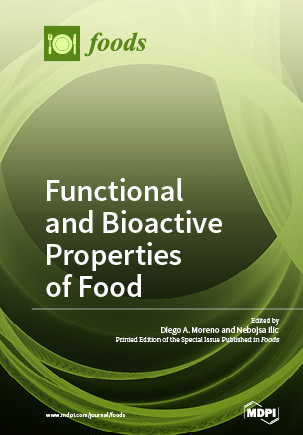
Apitherapy for Age-Related Skeletal Muscle Dysfunction (Sarcopenia): A Review on the Effects of Royal Jelly, Propolis, and Bee Pollen
2020 Sep 25 Foods Ali AM, Kunugi H
Bee products, rich in antioxidants and with versatile pharmacological activities, have shown varying positive effects on muscle mass, strength, and function in laboratory animals and limited human studies. Potential mechanisms include reducing inflammation and oxidative damage, promoting metabolic regulation, enhancing satellite stem cell responsiveness, improving muscular blood supply, inhibiting catabolic genes, and promoting peripheral neuronal regeneration.
Review Article Bee Pollen SarcopeniaClinical Trials
Clinical trials are research studies that involve people and are conducted to evaluate the safety and efficacy of new treatments or interventions, such as drugs, medical devices, or behavioural therapies.

The effects of propolis supplementation on high‐sensitivity C‐reactive protein, testosterone hormone, and metabolic profile in women with polycystic ovary syndrome: A randomized, triple‐blinded, placebo‐controlled clinical trial
2023 Sep 02 Phytotherapy Research Abbasi E, Bagherniya M, Soleimani D, Ghasemi‐Tehrani H, Abbaspour M, Clark CCT, et al.
Randomised Controlled TrialPropolis supplementation positively influences metabolic factors, testosterone levels, lipid profile, and body measurements in women suffering from polycystic ovarian syndrome.
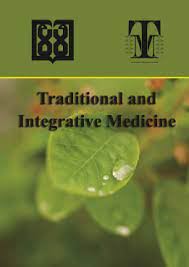
N-Chromosome Royal Jelly, Propolis and Bee Pollen Supplementation Improve the Clinical Conditions of COVID-19 Patients: A Randomized Controlled Trial
2022 Jan 08 Traditional and Integrative Medicine Abedini A, Shafaghi S, Ameri Ahmad Z, Javanmardi E, Ghorbani F, Sharif-Kashani B, et al.
In a randomized, open-label, controlled trial involving 50 cases of COVID-19, the intervention group receiving royal jelly, propolis, and bee pollen in addition to conventional treatment showed a more pronounced improvement in functional class compared to the control group. Additionally, the intervention group experienced significantly reduced total symptoms duration and time to return to work. Although these natural supplements are not definitive treatments for COVID-19, they can be considered as adjuvant treatments to limit disease symptoms and virus propagation.
Randomised Controlled Trial COVID-19 Bee Pollen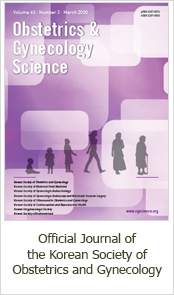
The effect of bee prepolis on primary dysmenorrhea: a randomized clinical trial
2019 Jan Obstetrics & Gynecology Science Jenabi E, Fereidooni B, Karami M, Masoumi SZ, Safari M, Khazaei S
Our study showed that the use of bee propolis for two months compared with placebo reduced primary dysmenorrhea during the first and second months after use, with no adverse effects. Therefore, it could be used as an alternative to nonsteroidal anti-inflammatory drugs for relief of primary dysmenorrhea.
Randomised Controlled Trial Propolis Period Pain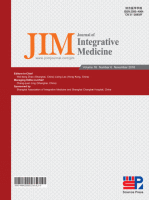
Effects of bee propolis supplementation on glycemic control, lipid profile and insulin resistance indices in patients with type 2 diabetes: a randomized, double-blind clinical trial
2017 Mar Journal of Integrative Medicine Samadi N, Mozaffari-Khosravi H, Rahmanian M, Askarishahi M
Daily intake of 900 mg of bee propolis supplement for 12 weeks led to improvements in glycemic control, as evidenced by reductions in fasting blood glucose (FBG) and hemoglobin A1c (HbA1c), as well as protective effects against the increase in total cholesterol (TC) levels in patients with T2D. However, no significant changes were observed in other lipid parameters or insulin resistance indices.
Randomised Controlled Trial PropolisStudy Protocols
Published study protocols are detailed plans that outline the objectives, methodology, statistical analyses, and organisation of a research study that have been made publicly available for others to review and use as a reference.
Presentation Slides

Randomised Controlled Trial
Propolis supplementation positively influences metabolic factors, testosterone levels, lipid profile, and body measurements in women suffering from polycystic ovarian syndrome.
Abbasi E, Bagherniya M, Soleimani D, Ghasemi‐Tehrani H, Abbaspour M, Clark CCT, Askari G

Review Article
Dietary supplements are found to be a promising complementary treatment for endometriosis, thanks to their anti-inflammatory, anti-oxidant, and immune modulatory characteristics.
Yalçın Bahat P, Ayhan I, Üreyen Özdemir E, İnceboz Ümit, Oral E

Review Article
Bee honey and propolis could have potential beneficial effects as supporting treatments for COVID-19, enhancing immunity and inhibiting viral activity.
Ali AM, Kunugi H

Review Article
Honeybee products like honey, propolis, and royal jelly have demonstrated potential benefits in treating metabolic diseases, cancers, and other illness types.
Pasupuleti VR, Sammugam L, Ramesh N, Gan SH
Executive Summary
Write an executive summary in the form of a blog article on the topic of "Research into Chinese medicine treatment for Propolis" summarising the research below and using language that can be easily understood by patients and avoiding medical jargon using a professional and caring tone of voice.
Write an executive summary in the form of a blog article on the topic of "Researched Chinese medicine treatments for Propolis" summarising the research below in an objective and easy to understand way, and using language that can be easily understood by patients. Group the article into Chinese medicine treatments first, followed by nutrition and other treatments. Avoid using medical jargon and use a professional and caring tone of voice.
Write me a concise but easy to understand executive summary on the topic of "Chinese medicine treatments for Propolis" based on the following research that I will give you. Your summary should be 2 paragraphs long in Australian English spelling and include references to the studies.
A Randomised Controlled Trial published in 2023 in the journal Phytotherapy Research found that Propolis supplementation positively influences metabolic factors, testosterone levels, lipid profile, and body measurements in women suffering from polycystic ovarian syndrome. The research was a triple-blind controlled trial constructed to consider the effects of propolis on women with polycystic ovarian syndrome. The participants, who were patients from a gynecology clinic, were randomly divided, following a structured randomization procedure, into two groups. One group was assigned to consume propolis tablets twice daily, amounting to 500 mg of propolis each day, while the other group received placebo tablets that were identical in appearance. This trial took place over the course of 12 weeks in the timeframe of 2021 to 2022. Information was gathered with the help of a demographic questionnaire, blood samples from the participants, and a checklist that helped record the parameters measured. In discussing results, it was noted that several key factors showed significant difference between the propolis and placebo groups. Hip circumference, fasting insulin, insulin resistance, testosterone levels, and low-density to high-density lipoprotein ratios were all seen to drop considerably in the group that received propolis, showing the potential benefits of this natural supplement. Despite an initial decrease in fasting blood sugar levels in the propolis group, the significance of this change was reduced after adjusting for other factors. Conclusively, the evidence points towards notable benefits of propolis, providing support for its usage in managing polycystic ovarian syndrome.
A Review Article published in 2022 in the journal Acta Biomedica found that Dietary supplements are found to be a promising complementary treatment for endometriosis, thanks to their anti-inflammatory, anti-oxidant, and immune modulatory characteristics. The researchers conducted a comprehensive literature review and synthesized the effects of various dietary supplements. The list of supplements includes vitamin D, zinc, magnesium, omega 3, propolis, quercetin, curcumin, N-acetylcysteine, probiotics, resveratrol, alpha lipoic acid, vitamin C, vitamin E, selenium, and epigallocatechin-3-gallate. These were studied due to their known anti-inflammatory, anti-oxidant, anti-proliferative, and immune modulatory characteristics. In terms of discussion on the results, the findings from the comprehensive literature review, encompassing in vitro, animal and human studies, show that there might be significant potential for dietary supplements as a complementary treatment to conventional therapy for endometriosis. Each supplement displayed attributes contributing to the mitigation of endometriosis symptoms, whether it was through anti-inflammatory means, antioxidant effects, immune modulation or their anti-proliferative properties. Despite variations between different kinds of supplements, the overall consensus indicates these function as a helpful add-on in managing the disease.
A Review Article published in 2021 in the journal Molecules found that Bee honey and propolis could have potential beneficial effects as supporting treatments for COVID-19, enhancing immunity and inhibiting viral activity. The study's methodology involved a comprehensive review of the literature on the potential anti-COVID-19 effects of bee honey and propolis, products known for their strong antimicrobial and antioxidant abilities. The researchers conducted molecular simulations to see how various flavonoids found in these products might inhibit essential viral processes. Additionally, they compared the effectiveness of propolis extracts delivered by nanocarriers to ethanolic extracts, and they examined the effects of a combination of honey and propolis on hospitalized COVID-19 patients. The findings from the review and simulations suggested that certain flavonoids in honey and propolis may inhibit the fusion of the virus spike with host cells, interactions that cause a cytokine storm, and viral replication. Propolis ethanolic extract, rutin, and propolis liposomes displayed inhibitory action against non-structural proteins of the virus in vitro while naringin inhibited viral infection in specific cells. When delivered via nanocarriers, propolis extracts showed enhanced antiviral effects against the virus compared to ethanolic extracts. Observations of hospitalized patients suggested that those treated with green Brazilian propolis or a honey-propolis combination experienced quicker viral clearance, symptom recovery, and hospital discharge, along with lower mortality rates.
A Review Article published in 2017 in the journal Oxidative Medicine and Cellular Longevity found that Honeybee products like honey, propolis, and royal jelly have demonstrated potential benefits in treating metabolic diseases, cancers, and other illness types. The research reviewed the effects and mechanisms of honey, propolis, and royal jelly on various health conditions. Their uses in correlation to metabolic diseases and different types of cancers were meticulously explored. Honey was examined for its microbial inhibiting and wound healing properties and its role in treating other diseases. The study found that honey demonstrated potential benefits such as microbial inhibition, wound healing, and effects on other diseases. Propolis was reported to have various health benefits related to gastrointestinal disorders, allergies, and issues related to gynecology, oral health, and dermatology. Royal jelly displayed protective effects on reproductive health, neurodegenerative disorders, wound healing, and aging. While these were potential benefits and effects elucidated, the specific mechanisms of action remain undetermined.
Moderation Tools
Topic
Sign In
Users not signed in are limited to viewing the 5 most recent items of content.